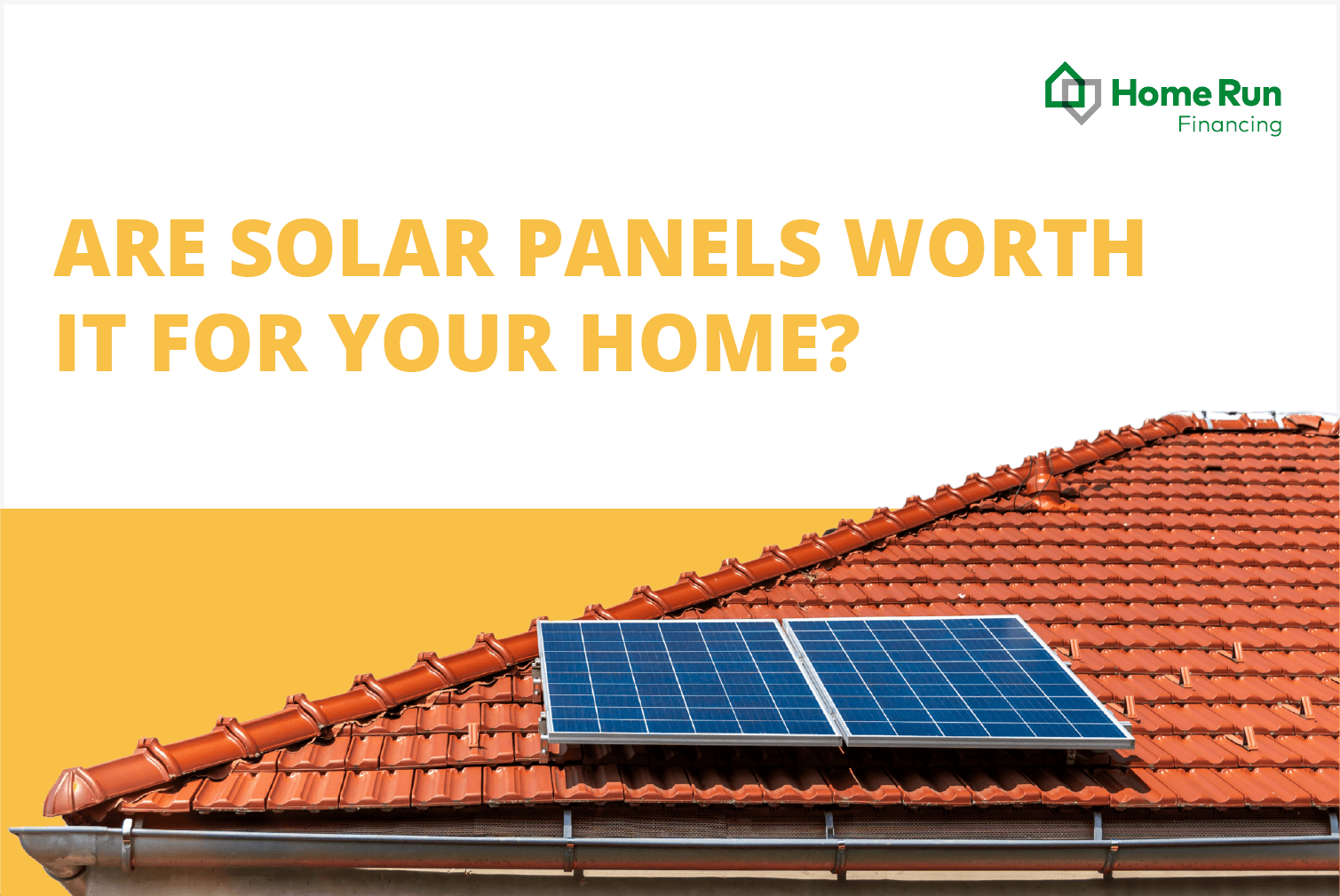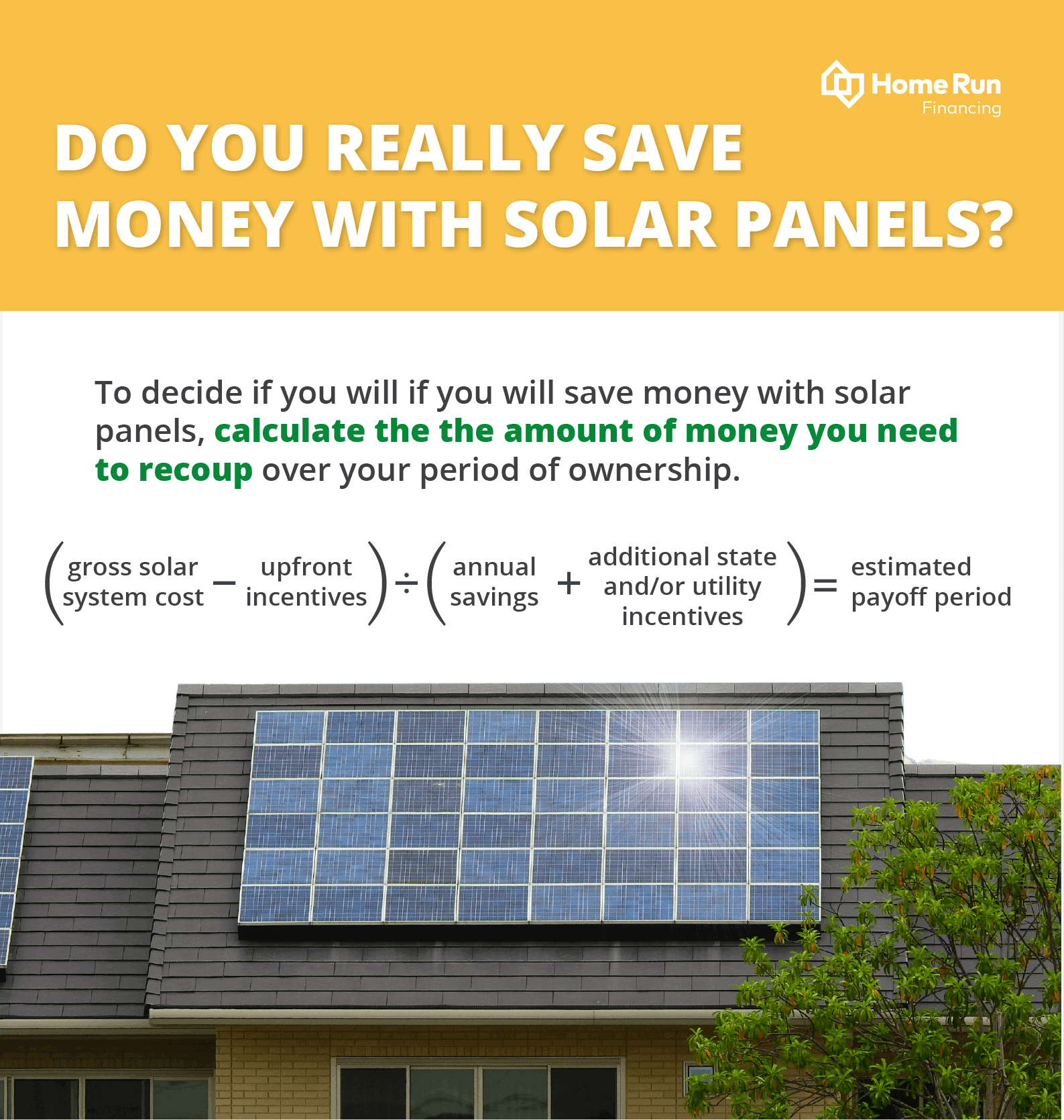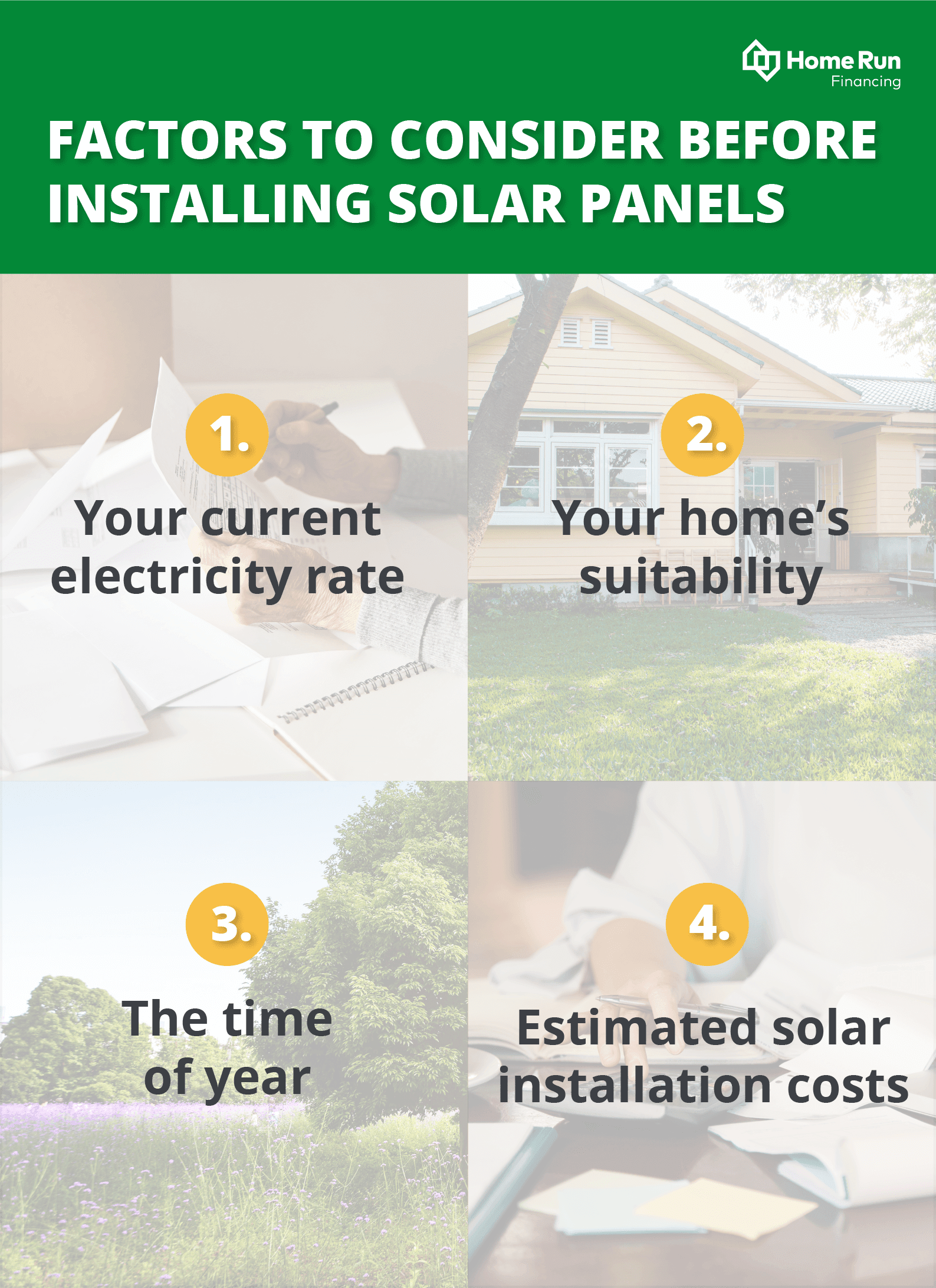
Are Solar Panels Worth It for Your Home?
Many people are considering the question: Are solar panels worth it? You can answer in several ways. You might be able to cut your energy bills and may even be able to sell excess power back to your utility. Furthermore, solar panels can increase the value of your property. They may help you reduce your carbon footprint and increase your energy independence.
While they might not work out for everyone, you might want to think about when it makes sense to get solar for your home.
Table of Contents:
- How does solar energy work?
- Do solar panels save you money?
- Calculate your solar panel payback period
- 4 factors to consider before getting solar panels
- Does it make sense for you to go solar?
How does solar energy work?
Two competing technologies make up most solar energy systems available to homeowners. One technology, concentrated solar thermal systems, generates electricity by using mirrors to capture the sun rays. Electric generators convert solar energy into heat to drive an alternating current. Photovoltaic technology uses light to create loose electrons flowing in a direct current. Energy must then be converted to harness photovoltaic panels.
Do solar panels save you money?
Can you save money with solar panels? It depends on your energy consumption habits. How much power do you use and when do you consume it? How much power can you generate? Large and efficient systems can generate a significant amount of power, but generally require a house with direct southern exposure in a sunny climate to work most efficiently.
Of course, a good system costs more. How much you pay to acquire, install and maintain your solar system will impact your ability to save money and energy. The last factor is the cost of electricity in your area. Rates determine your profits and savings.

How to calculate your solar panel payback period
Rather than guessing whether solar panels are worth it, calculate the key metrics. First, determine the cost of your system that includes what you pay for your equipment with installation, less incentives and discounts. Divide that by the sum of your power bill savings plus incentives from the state or utility companies.
Keep in mind that some utilities will buy energy generated in excess of consumption. The result is the amount of money needed to recoup during ownership. You can then decide if you save money with solar panels.
Finding solar rebates and incentives in your area
The federal government offers tax credits as do many state and local governments. California, Florida, and Missouri offer investment tax credits and other incentives. Your utility may have programs that cut upfront and ongoing costs. In addition to your own research, a solar dealer is likely up-to-date on the latest offers and programs.
4 factors to consider before getting solar panels

When considering whether solar panels are worth getting, look at all the angles. These four factors are important.
1. Your current electricity rate
Your ability to save money and recoup costs is highly dependent on electricity rates. If you live in a state that allows competition, survey several providers.
The second consideration is how much electricity you use. Will you be able to cover a significant portion of your usage if you install solar panels or will you still have to pay your utility company for most of it? If you’re hoping to save money with solar panels, your costs and usage rate will help answer this.
2. Your home’s suitability for solar panels
Your home may not be a good fit for solar panels. If you live on the north side of a hill deep in the woods, you may not get enough sun to make a difference. The shape and angle of your roof both matter. You need to position solar panels facing south and angle them to capture the most sun throughout the day.
Roofing material also matters. This may be a good time to consider when to replace your roof if it is old or deteriorating before installation. This work will increase costs. The last issue is climate. If you’re in a cloudy area prone to high winds, solar panels may not be worth it.
3. The time of year you’re looking to install solar panels
Like most things, supply and demand affect the price. In general, solar dealers aren’t as busy in the wintertime and may offer discounts. If the winter weather isn’t too harsh, getting solar panels is a good idea. If your system is in place by January, you can get a full year of credit. You’ll be up and running well before peak power demand hits in the summer months.
4. Your estimated solar installation costs
The National Renewable Energy Laboratory (NREL) calculates cost breakdowns every year.
About 9% of the cost of any system is in the panels. Access requires an inverter, which accounts for 12% of costs. Batteries run about 16% of the typical setup. So-called “soft costs” include labor at 7% of the total. Another 10% goes to permitting, inspection and interconnectivity. The remainder goes to sales taxes, overhead, and profit. The actual costs will depend on size and model.
Ultimately, make sure to consider your own situation
When deciding if solar panels are worth it, look at your specific situation and options. You can buy or lease systems with a variety of financing options.
Solar systems are perfect for Property Assessed Clean Energy or PACE financing loans that work by using your home equity as security. Specific residential PACE solar financing is designed for these systems. If you have questions, please don’t hesitate to contact Home Run Financing or visit any of Home Run’s locations.
